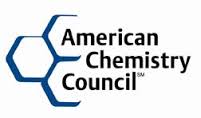WASHINGTON (February 11, 2020) – Today, U.S. Senator Tom Udall and U.S. Representative Alan Lowenthal introduced legislation designed to address plastic waste. The American Chemistry Council responded with the following statement, which may be attributed to Keith Christman, managing director of ACC’s Plastics Division:
“ACC and our members are contributing to solutions to help end plastic waste, and we welcome the opportunity to work with Congress on legislation that will help improve plastic recycling and recovery in the United States. We have actively supported the bipartisan Save Our Seas Act (versions 1.0 and 2.0), and support the RECOVER Act and RECYCLE Act. And our members are leading in the deployment of system improvements and technology advances to convert a variety of used plastics into resources to make new plastics. Over the last 18 months we have seen more than $4.2 billion in new investments in plastics recycling with potential to divert 6 billion pounds of plastics from landfill.
“But suggestions, such as a moratorium on new plastic facilities, would limit domestic manufacturing growth, jobs, tax revenues for local communities, and other benefits. Society needs plastics to live more sustainably. Plastics make our cars lighter and more fuel efficient and our homes more energy efficient while significantly lowering our carbon footprint. Plastic food packaging and pipe deliver clean food and water to people in our communities and around the globe. And plastics make possible affordable medical and personal care products. An award-winning study by the firm Trucost found that replacing plastics with alternatives in common packages and consumer products would raise environmental costs nearly fourfold. Thus the moratorium and bans on plastic products are likely to increase environmental impacts while limiting access to a material that enables society to do more with less.
We need plastics, and we need to end plastic waste and by moving toward a more circular economy for plastics.
CONTINUE READING ON www.americanchemistry.com



